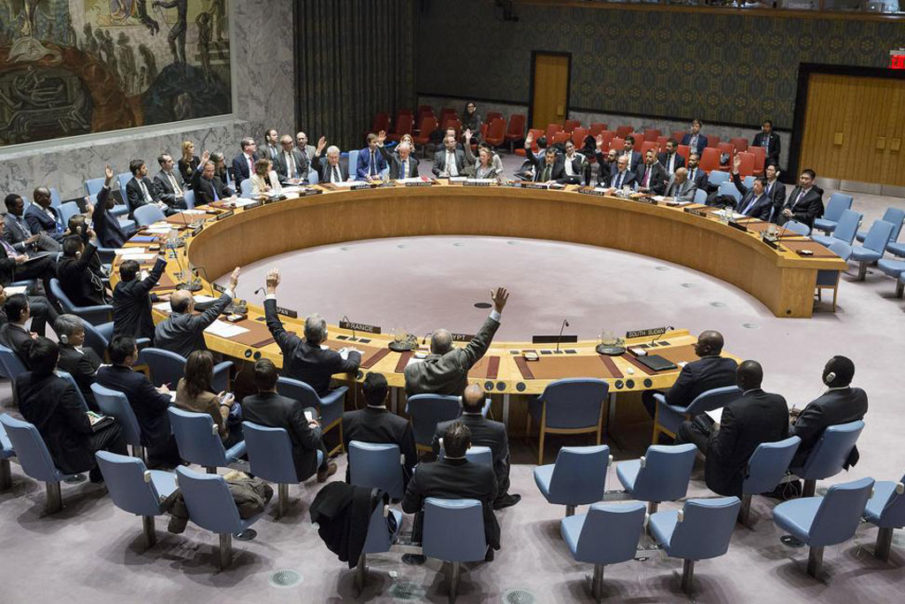The United States is calling for a vote as early as Monday on new, harsher sanctions to be imposed on North Korea by the UN Security Council over its recent test of what experts believe to be a hydrogen bomb, though no details have yet been released as to what those sanctions might actually entail.
According to members of the Security Council, no one is currently authorized to reveal the details of the proposed resolution, as talks have been held entirely in private, but diplomats from the United States and China were reportedly continuing to debate the language of the resolution into the night on Sunday.
North Korea’s latest nuclear test, their sixth overall, demonstrated that they now possess a significantly more advanced nuclear weapon than in previous tests. North Korea claimed the massive explosion was a successful test of a two-stage thermonuclear device, or hydrogen bomb, which Western experts have not been able to conclusively verify, but believe that the evidence at hand supports their claims. In all likelihood, Kim now possesses nuclear weapons that are five to ten times more powerful than any previous weapon believed to be in the North Korean arsenal.
North Korea, despite not knowing what the proposed resolution might entail, has already begun lofting threats of reprisal in anticipation of a possible vote early this week, claiming that the United States will pay a “due price” if harsh sanctions are agreed upon by the Security Council.
The forthcoming measures to be taken by the DPRK will cause the U.S. the greatest pain and suffering it had ever gone through in its entire history,” a statement released by Kim’s regime states, “The DPRK is ready and willing to use any form of ultimate means.”
The statement also calls the U.S.’ efforts to pass this new resolution “illegal and unlawful,” in keeping with their latest shift in tone toward assuming the role of an aggressive victim.
Although details are sparse, the resolution that is up for debate has been reported to include the harshest financial restrictions on North Korean trade yet, in hopes that strangling the nation of funds will finally push Kim Jong un toward negotiating an end to his nuclear pursuits. Some nations have publicly voiced their opposition to such a tactic, including Russia in particular. Vladimir Putin has made it clear that he believes economic sanctions will not be successful, effectively claiming that only a negotiated peace, brokered by the likes of Russia and China, will be effective.
China and Russia both possess veto authority over Security Council resolutions, meaning they must both agree to allow the resolution to move forward in order for the UN to enact it. However, despite Russia’s open reluctance to economically isolate North Korea any further, China has assumed the surprising position of agreeing that further UN action may be necessary in order to corral their economic ally, saying that they supported the idea of a “further response” to the latest developments in North Korea’s nuclear arsenal.
We hope UNSC members will come to a consensus through full consultations and will send out the voice of unity and solidarity,” Chinese Foreign Ministry spokesperson Geng Shuang said at regular press conference Monday. “The UNSC’s response and actions should be helpful to the denuclearization of the Korean Peninsula and to maintaining the stability of the region. And also helpful to solve the North Korea issue peacefully,” Geng said.
Image courtesy of the United Nations
Already have an account? Sign In
Two ways to continue to read this article.
Subscribe
$1.99
every 4 weeks
- Unlimited access to all articles
- Support independent journalism
- Ad-free reading experience
Subscribe Now
Recurring Monthly. Cancel Anytime.











COMMENTS